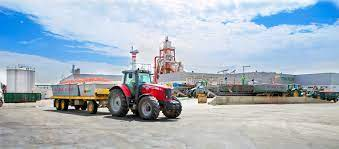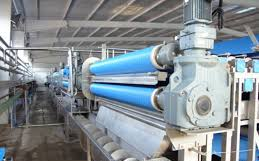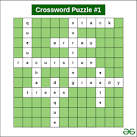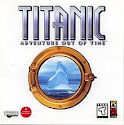An online activity for studying "going to":
miércoles, 31 de mayo de 2023
martes, 30 de mayo de 2023
Animal body parts + review of animals. 1st grade.
Bike parts crossword. 5th grade A.
Bike parts. 5th grade A.
jueves, 25 de mayo de 2023
miércoles, 24 de mayo de 2023
Plants. My flower garden. Listening for 3rd grade A.
This listening will also appear at the exam. The second part of the video is subtitled. On Friday we will work it at class.
Plants. 3rd grade A.
jueves, 18 de mayo de 2023
Titanic online game. 5th grade A.
martes, 16 de mayo de 2023
Tomato Factories. 5th grade B.
In Santa Amalia we have two great tomato factories: Tomalia and Tomates del Guadiana. Both them process fresh tomatoes, transforming them in concentrated tomato. What happens inside is something amazing: and in this report we are going to know about it:
 |
| Tractor pulling a tomato trailer. |
Step 1: from the fields to the factory.
Tractors and trucks bring continuously tomato from surrounding fields. Speed is important: once a tomato has been collected, it starts to lose quality and weight. The trailers wait in the factory parking until they are called for unloading.
Step 2:unloading.
Fresh tomatoes are unloaded in big pools, full of water. From there, their travel along the factory starts.
 |
| Conveyer belt. |
Step 3: washing and sorting.
Tomatoes are driven by a conveyer belt towards the chopping area. At this point they are washed; also rotten and green tomatoes are discarded. Later, they are chopped
Step 4: juice extraction.
Once tomatoes are chopped, it is time to extract the juice. This is done by means of a machine called "screw juicer" (see photo). The idea: to extract the maximum of water for preserving the tomato.
 |
| Screw Juicer |
Step 5: Sterilization.
Once the tomato paste is almost with no water, is time to sterilizate. The concentrated tomato is heat over 100 Cº, killing all possible bacteria.
Step 6: cooling and aseptic filling.
The final step. Tomato is cooled and then introduced in barrels, protected by a plastic bag. All barrels you can see out of the factory are filled with tomato paste, ready for being exported all over the world.
Farming.
Here I let you some stuff related to farming:
And a listening we will do today at class:
jueves, 11 de mayo de 2023
Parts of a tree. 3rd grade A.
Roots = feet.
Trunk = body.
Branches = arms.
Leaves = fingers.
And thorn, which is not in the worksheet:
jueves, 4 de mayo de 2023
Trip to Mérida. 3rd grade. The Roman Theathre.
 |
| Merida's Roman Theathre |
Next Wednesday we will visit Merida's Roman theatre and amphitheathre. Two great constructions from about 2000 years before today. Here we are going to learn something about the theathre.
Merida's Roman Theathre.
Merida's Roman Theathre is one of the best preserved theathres from ancient Roman world. It could hold up 5000 people. There, ancient Greek and Roman dramas were played. Its parts were the following ones:
- Stage: where actors played the dramas. It represented the facade of a palace, adorned with marbles, columns and sculptures of Roman gods, godesses and Emperors.
- Orchestra: a half circle just in front of the stage, where musicians played their part in the drama.
- Lower stand: a space for rich people, the best place for watching the drama.
- Medium stand: where normal people (usually men) sat.
- Upper stand: a place reserved for women and children.










